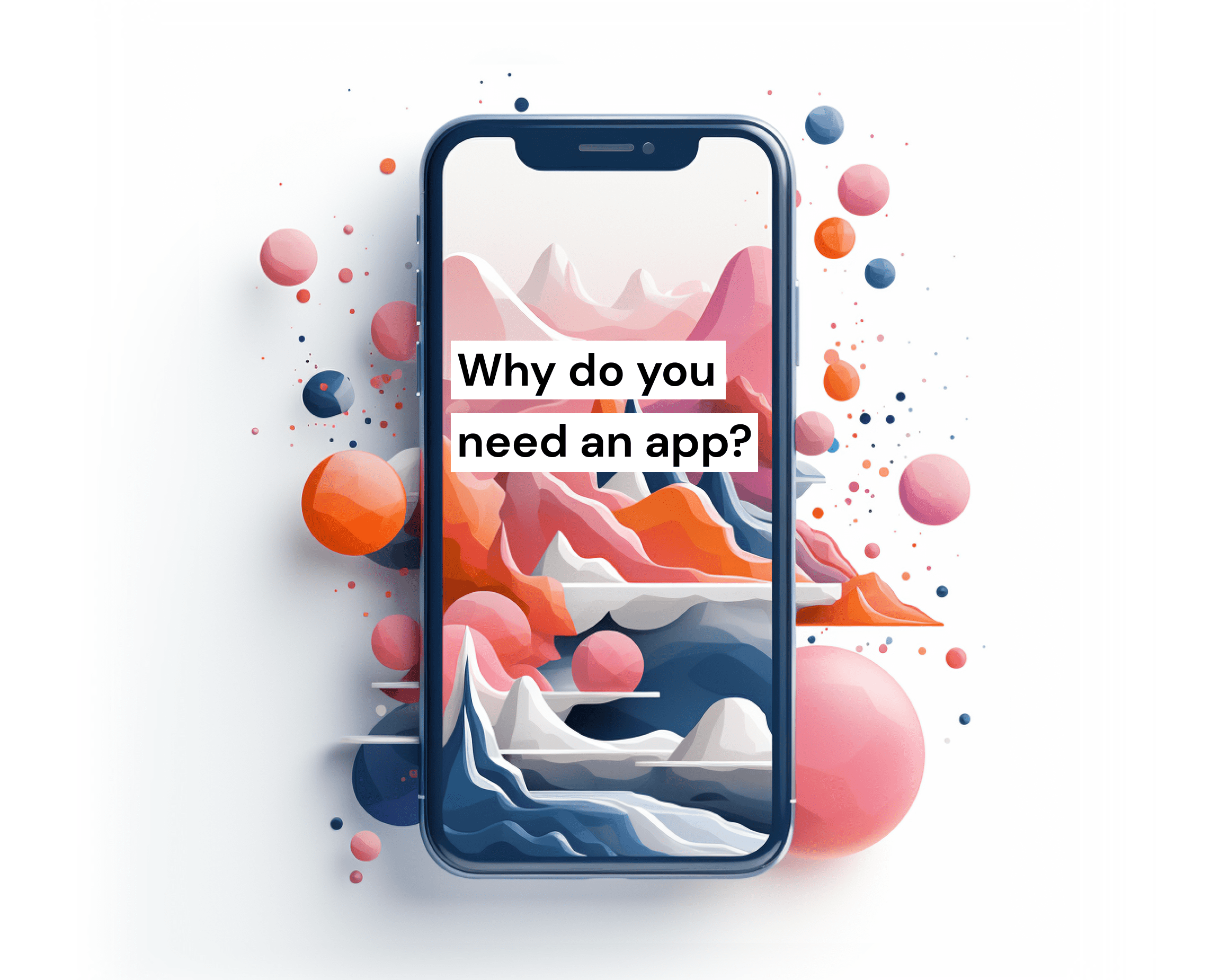Mobile Apps: Why Do You Need an App and How to Monetize It?
Uncover the importance of mobile apps, their potential for monetization, and the various development options to build effective applications.
Who doesn't rely on their smartphone these days? It has become a hub for various activities, with the number of possibilities expanding every day.
Statistics about mobile app usage in 2022:
- Consumer spending in app stores in 2022 was approx. $167 billion.
- The annual mobile apps downloads of all types reached 255 billion in 2022.
- Users spent around five hours a day using mobile apps in 2022.
Only a decade ago, entrepreneurs aimed to have internet access, but now the focus is shifting towards developing their own mobile applications due to their immense potential. Let's explore when businesses should consider apps and the various monetization options available.
Mobile Web vs. Application: The Difference
Apps are installed on the user's device from an app store, like the App Store for iOS or Google Play for Android, and run directly on the device. On the other hand, mobile sites are accessible through a browser and do not require installation.
Key differences include:
- Mobile apps can tap into device features, unlocking a world of interactive and integrated functionalities.
- Many apps can operate offline without an internet connection.
- Apps often perform better and faster, particularly with complex operations and data processing.
- Apps offer additional elements like animations and gestures to enhance the user experience, whereas mobile sites may have design and interactivity limitations.

Mobile applications can be used for external purposes (as a separate product) or internal needs (e.g., coordinating couriers or drivers). They can be integrated into existing businesses or introduced as entirely new ventures.
If you already have a company, consider mobile application development in the following scenarios:
- When the web version of your product/service is not mobile-friendly, an app can offer a more optimized interface.
- To expand into new markets or reach untapped audiences through the application.
- For customer loyalty initiatives, personalized discounts, and bonuses.
- To enhance internal business processes for better efficiency and effectiveness.
- When your business relies heavily on GPS or camera functionalities, leveraging a mobile app allows for better utilization of these features.
- If you plan to expand your products/services, a mobile app can serve as a foundation or a separate product.
Remember not to create an app just for the sake of it. It should address specific problems faced by specific users. If your mobile version is already successful, investing time and effort into app development might not be necessary. However, the decision ultimately depends on your specific business requirements.
How do mobile apps make money?
- Apps with Ads: available for free but include advertisements that generate revenue for developers based on impressions or clicks.
- In-App Purchases: available for free but have the option to make paid purchases within the app to unlock additional features, content, or virtual goods.
- Subscriptions: Apps offer access to certain features, content, or benefits on a periodic basis (monthly, yearly, etc.) for a recurring fee.
- Frbold texteemium: the app offers a basic version for free, with limited features, and users can choose to buy paid packages to access additional features and functionalities.
- Advertising Partnerships and Affiliate Marketing: The app integrates advertisements or promotes partner products and services, earning the developer a commission for successful transactions.
- White Labeling and Subscription Fees: Developers create applications that can be sold or licensed to other companies, often with the possibility of subscription fees for continued usage.
- Selling Data: Some apps collect and sell user behavior data for market research purposes.
- Aggregator Apps: aggregate specific services or products, charging fees for successful transactions or orders made through the app.
- It is worth noting that e-commerce is another significant category in app monetization, but it falls under a completely separate domain.
Development options
No-code: This approach involves creating an application using pre-built interfaces and blocks, making it suitable for simpler products with standard tasks.
Specific Devices: Apps can be developed separately for iOS and Android, particularly if there is a need to differentiate functions or create a distinct interface for each platform.
Cross-Platform Applications: This option involves using a single source code for both Android and iOS, and sometimes for web applications as well. However, cross-platform development may have certain limitations to consider.
As the app is designed for different devices, each with its own operating system and limitations, the development process may be more time-consuming than creating a site with non-standard functionalities. It is crucial to evaluate the costs and potential profits, such as simplifying work processes and estimating user numbers.
At inCode Systems, we develop mobile applications using Flutter or React Native and use a single code base for Android, iOS & Web. If you have any questions regarding your app's growth strategy, feel free to reach out to us. We're here to assist you!
We hope this article has been useful and informative.
Are you considering creating a mobile application? If so, what specific problem do you aim to solve with it?
inCode Ltd.
London, United Kingdom
Palliser Road, London, England, W14 9EB
inCode Systems LLC.
Austin, TX, USA
Austin, TX 78731